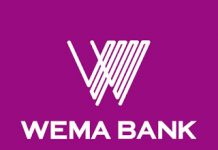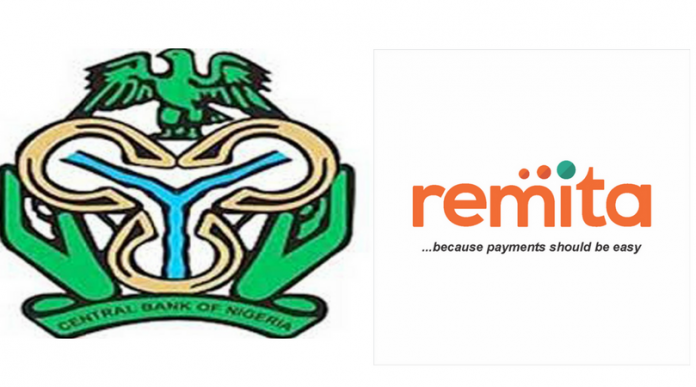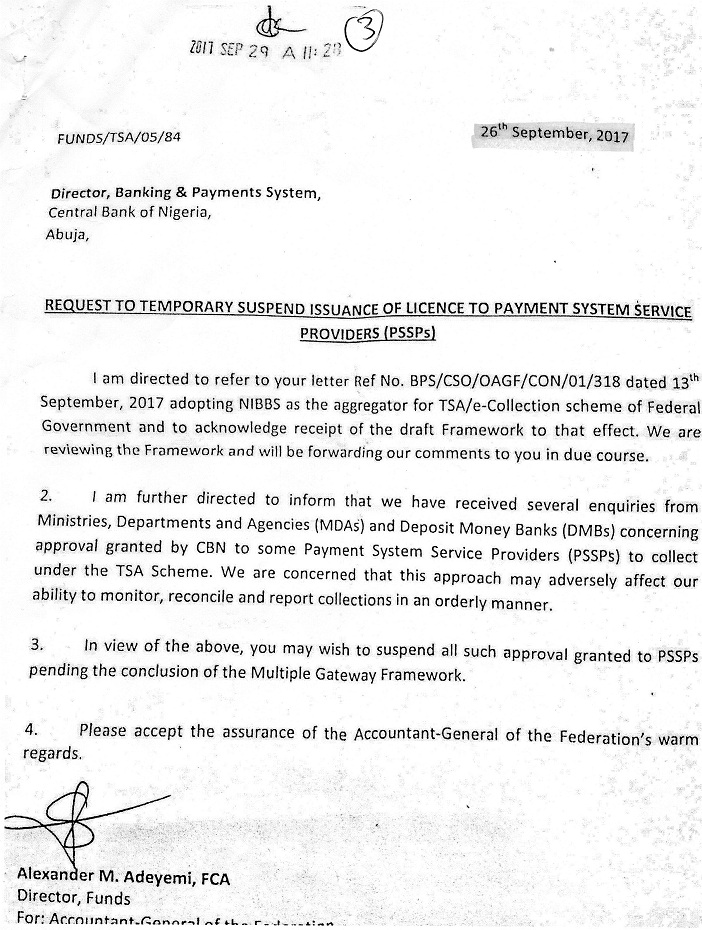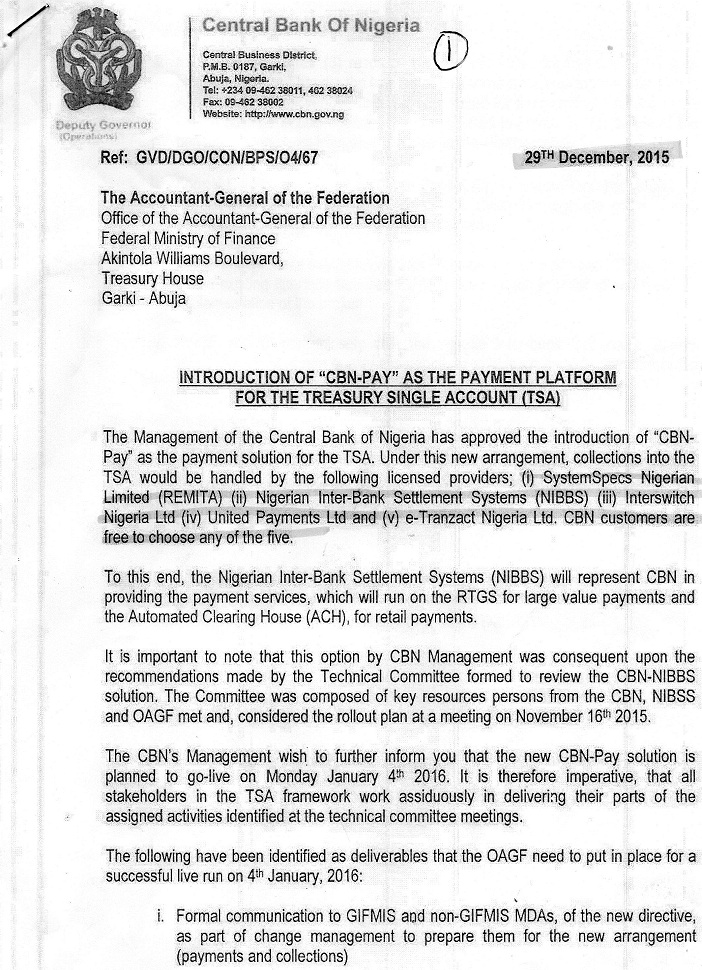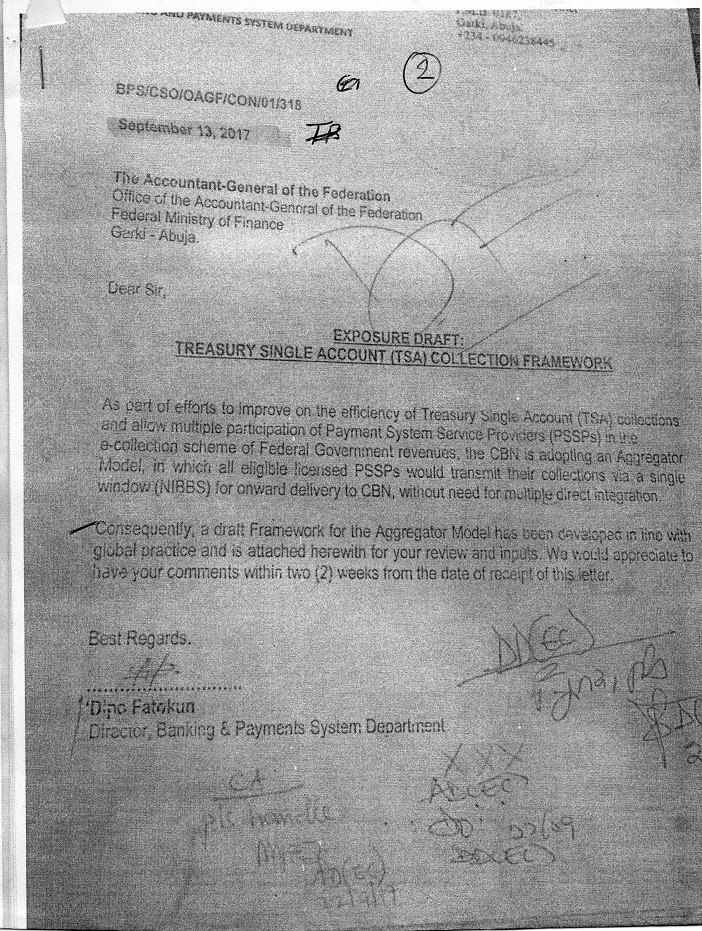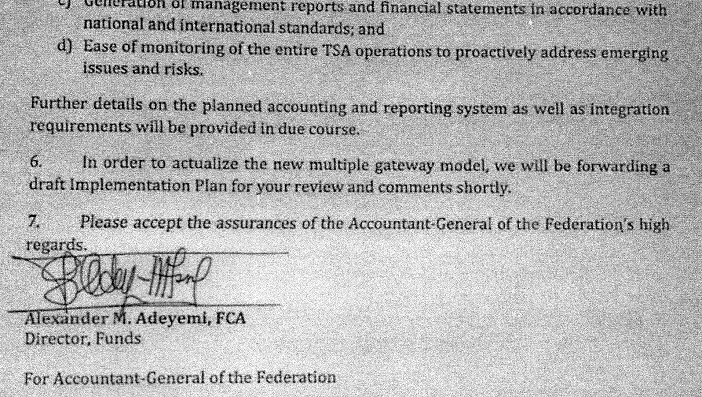GODDIE OFOSE
While engaging with Systemspecs on how to resolve the Treasury Single Account (TSA) transactions fee dispute, documents and reports obtained indicate that the Central Bank of Nigeria (CBN) made several attempts to terminate its agreement with the payment gateway, Remita and replace it with the Nigerian Inter-Bank Settlement Systems’ platform called CBN-PAY.
It would be recalled that before Systemspecs’ Remita was engaged to implement the TSA project in 2011, the CBN had written to Office of the Accountant General of the Federation (OAGF) that the project was not feasible for at least another two years.
The initial thinking then was to use the Real Time Gross Settlement (RTGS) to support the TSA transactions before it was observed that RTGS was not designed for retail and high volume transactions.
But when Systemspecs signified its intention to provide a solution for TSA, the firm was told that NIBSS had also expressed an interest and the decision of which platform to use was left to a joint evaluation committee comprising the CBN, OAGF and external consultants.
Three times, Systemspecs and NIBSS made competitive presentations to the joint evaluation committee.
It was clear to the panel that the wholly-Nigerian-developed Remita effectively addressed all the requirements expected by the OAGF and its external consultants to support TSA e-payment and e-collection of government receipts.
With this evaluation, the Remita platform was consequently engaged as the TSA gateway by the CBN.
Upon engagement, Systemspecs worked with the CBN officials to make the solution ready within a very strict timeline in order to meet the planned January 2012 launch date of TSA.
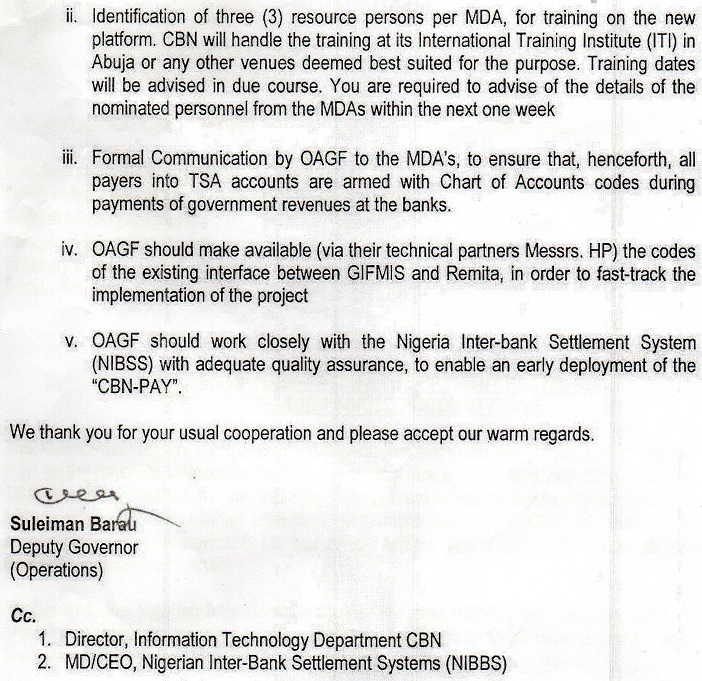

However, the collection component of TSA did not start as scheduled due to the resistance from a number of quarters and the absence of the political will to push this through.
But President Muhamadu Buhari’s directive in August 2015, which compelled all MDAs to join the scheme, increased the scope of the TSA project and gave life to the regime that has vastly improved collections for government.
Consequently, the approved 1% processing fee became a subject of controversy which led to the suspension of transaction charges from 2015 till date.
Based on the 1% transaction fee agreement, the Federal Government now owes the banks and other TSA service providers over N18 billion in arrears.
But while the stakeholders were locked in protracted negotiations on how to resolve the transaction fee imbroglio, the CBN management on December 29, 2015, wrote a letter to the Accountant-General of the Federation (AGF), introducing CBN-PAY as the new payment platform for the TSA.
The letter was signed by a Sulaiman Barau, the CBN’s Deputy Governor in charge of operations.
CBN’s letter stated that:
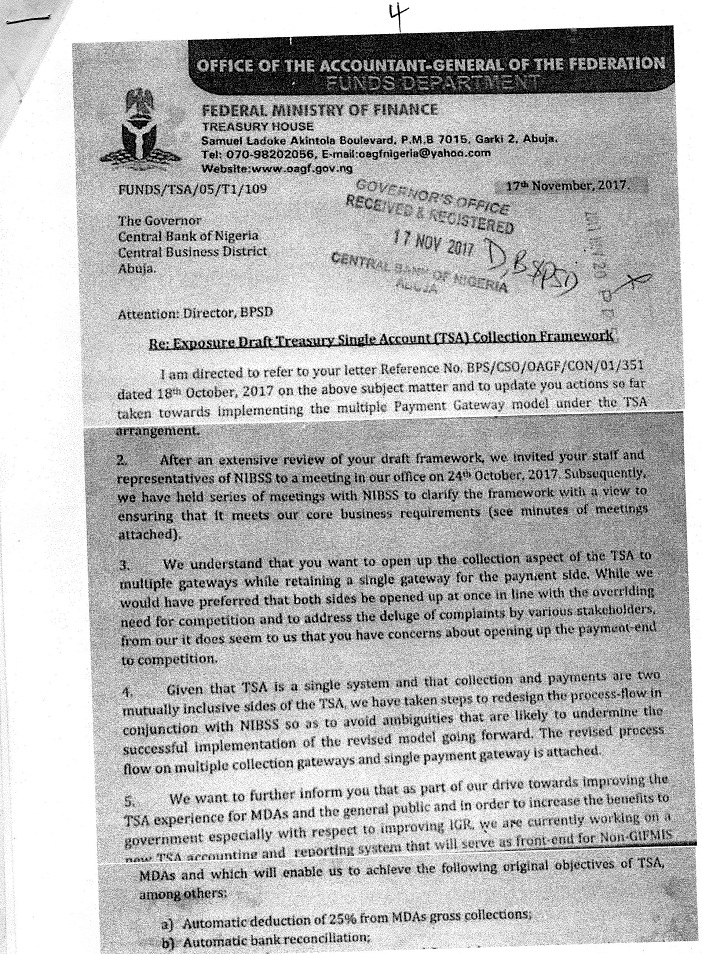

However, the CBN could not adequately convince other stakeholders in the TSA scheme, particularly the Minister of Finance, Mrs. Kemi Adeosun who reportedly directed CBN and OAGF, to resolve the contractual disputes with Systemspecs rather than engage several service providers.
But instead of implementing the Minister’s directive as advised, the CBN on September 13, 2017, wrote yet another letter to the OAGF introducing a new TSA collection framework that technically replaced Remita with NIBSS as the payment gateway.
In the letter signed by Mr. Dipo Fatokun, Director, Banking & Payments System Department, the apex bank noted:
“As part of efforts to improve participation of Payment System Service Providers (PSSPs) in the e-collection scheme of Federal Government revenues, the CBN is adopting an aggregator model, in which all eligible licensed PSSPs would transmit their collections via a single window (NIBSS) for onward delivery to the CBN without need for multiple direct integration. Consequently, a draft framework for the aggregator model has been developed in line with global practice and is attached herewith for review and input,” the letter ended. In its response through another letter dated September 26, 2017and signed by Alexander Adeyemi, the Director of Fund, the OAGF noted that:
“We have received several enquiries from MDAs and Deposit Money Bank (DMBs) concerning approval granted by the CBN to some PSSPs to collect under the TSA scheme. We are concerned that this approach may adversely affect our ability to monitor, reconcile and report collections in an orderly manner.”
While the apex bank focused its attention on the introduction of un-approved technology and operational processes that challengeded and aims to undermine the approved TSA technology and operational design, other stakeholders are worried that two years after the project was implemented, the service providers and the banks that are enabling the TSA have not been paid, and no one in government has assumed full responsibility for this lapse.
Chairman of the House of Representatives Adhoc Committee on TSA, Abubakar Danburam-Nuhu (APC Kano) described the lingering non-payment of processing fees to service providers of TSA as a major threat that will abort the continuity of the TSA and therefore called for the establishment of TSA office.
Other problems identified were the non-reconciliation of MDAs’ accounts and non-audit of the entire TSA operations for over two years with a N40 billion account debit discovered as at September 2017 and inexplicable granting of exemptions, and non-sanction of non-compliant MDAs, which is contrary to extant rules and operational guidelines.
The refusal to bring foreign exchange payments and revenue collections under TSA, which is contrary to the original design of having a single view of all government revenues and expenditures is another identified challenge of policy.





















